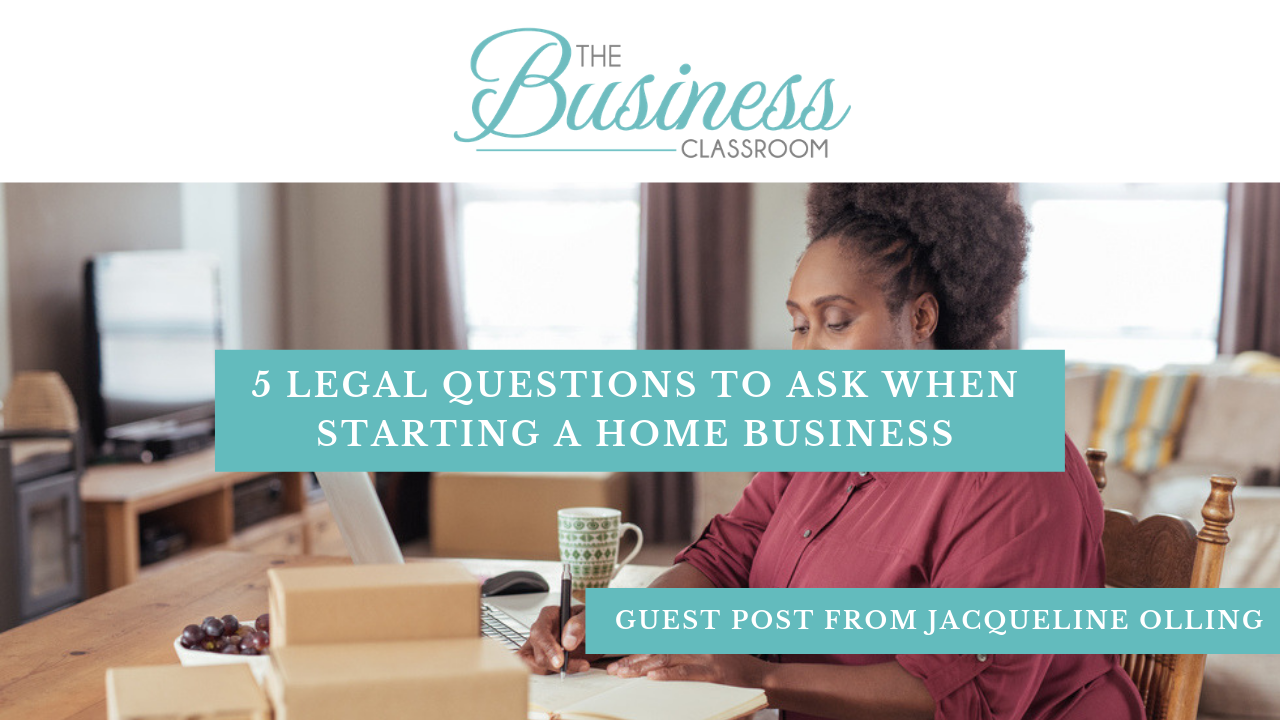5 Legal Questions to Ask When Starting a Home Business
Oct 12, 2018
If you’re thinking about joining the nearly 1 million Australians who run a business from home, read this guide to understand what legal questions you should be asking before taking the plunge.
1. What Council approvals will I need (if any?)
When starting a business from home, it is always important to check if you need approval from your Local Council. Different Councils have different zoning and regulatory rules around running a business from home – there are those that require for a special permit to be granted and approved before commencing your business, and there are those that require no approval at all.
Some of the most common documents you may have to submit to your Local Council are:
- Development Application (DA) form
- Statement of Environmental Effects form
- Site Plan showing all existing buildings, structures and driveways
- Floor Plan of your home and your intended home-based business
- Notification plan showing the site and/or building that is to be used for the home-based business to send to your neighbours.
To find out what approvals you may need, the Office of Local Government has a helpful directory which enables you to find your Local Council and their contact details.
2. What structure is my business going to take?
When you decide to start a business, arguably the most important choice you will make will be how you will structure your business. Your choice will be between registering as a sole trader or a company, and there’s even an option to register as a partnership.
Registering as a sole trader requires you to apply for an Australian Business Number (ABN). The benefits of registering as a sole trader are that you do not have to pay company tax (profits from the business will form part of your individual income), and you do not have to disclose your business’s activities to the same extent that companies do. Conversely, you will be entirely responsible for your company’s liabilities and if anything goes wrong, it will fall on you.
Registering as a company is generally more expensive, but your business will be considered legally separate from you as an individual. What this means is if your business has any liabilities, they will not personally attach to you. If your business becomes highly profitable, paying company tax rates will be less expensive than having your profits be counted as part of your individual income.
3. If I rent my home, will I need permission from my Landlord to run my business from home?
If you are renting your home, be sure to check your tenancy agreement for any clauses that may prohibit you from running a business from home. Even if there isn’t anything in your agreement which prohibits this, you must still obtain the permission of your landlord. This is because a residential tenancy agreement is defined as being for residential purposes. Subsequently, your property must still primarily serve a residential purpose, rather than a commercial one. If you are renting an apartment, you will also have to consider the effect that this will have on other tenants in your building.
4. Will I be making any alterations to my home for the business?
If you will need to make any alterations to your property to run your business, or will be making any significant changes through advertising, you may need to lodge a Development Application with your local Council. Be sure to check your local zoning guidelines. Even if you won’t be making any significant changes to your property, do your due diligence and inform your neighbours that you will be operating a business from your home.
5. What Insurance will I need?
In the same way that all homes should be insured, so should all businesses. However, there are distinct policies that different types of businesses require, depending on industry, employment and the location of the business. If you run your business from home, it is possible that your home and contents insurance will cover you depending on the type of business you run.
However, you will most likely need to be covered for other things. This can include professional indemnity, public liability and management liability insurance. Having these protections will mean that you can run your business with the peace of mind that if anything goes wrong, you’re covered. If you’re unsure of whether you will need insurance, it’s always worth getting advice from a business lawyer.
There are many legal things you will have to consider when you decide to run a home-based business. However, the above questions will help you get started the right way and if you tackle these correctly, you can enjoy all of the benefits running your business from home has to offer.
*** This Guest Post was from Jacqueline Olling***
Jackie is the Content Manager at LawPath. She has a Bachelor of Laws and Bachelor of Arts from Macquarie University and has worked in the legal industry since 2014, as both a paralegal and graduate lawyer. She is interested in legal technology and how it can be used to make legal services more accessible.

